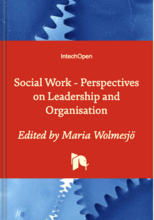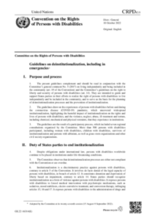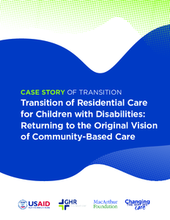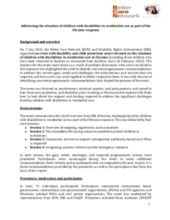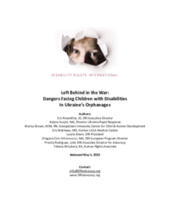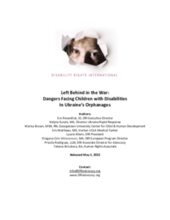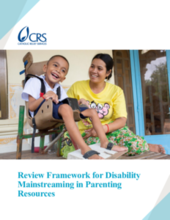Displaying 61 - 70 of 494
While several interventions have been put in place to address the needs of persons with disabilities in developed countries, their counterparts in low-income countries, such as Ghana, continue to face marginalisation and exclusion. Using user-perspective and co-production approaches, this report analyses existing services for Ghanaians with disabilities and the relevance and usefulness of these services.
These guidelines complement the Committee’s General Comment No. 5 (2017) and its guidelines on the right to liberty and security of persons with disabilities. They are intended to guide and support States parties, in their efforts to realize the right of persons with disabilities to live independently and be included in the community, and to be the basis for planning deinstitutionalization processes and prevention of institutionalization.
This COSP 15 side event was organised by ENIL, in cooperation with Disability Rights Defenders. It addressed the issue of increasing segregation of persons with disabilities in institutions as a result of the war in Ukraine, despite lessons learned during COVID. It focused on the role of the funders in the humanitarian response and the post-war recovery, urging for full compliance with the UN CRPD and ensuring that no funding goes towards institutionalisation of persons with disabilities.
The Returning to Original Vision case story demonstrates reunification of children with disabilities as a critical step in transition. It also highlights the challenges of maintaining organizational vision within a process of transforming services.
On 7 July 2022, the Better Care Network (BCN) and Disability Rights International (DRI) organised an event with disability and child protection actors focused on the situation of children with disabilities in residential care in Ukraine (including those children who have been returned to families or evacuated from facilities since 24 February 2022).
There were an estimated 100,000 children in Ukraine’s institutions before Russia’s war on Ukraine which began in February 2022.
Disability Rights International (DRI) published these recommendations in response to a visit to Ukraine’s institutions for children with disabilities in late April 2022. DRI visited three facilities for children aged six to adult, and one “baby” home for children from birth to age six.
DRI found that Ukraine’s children with disabilities with the greatest support needs are living in atrocious conditions – entirely overlooked by major international relief agencies and receiving little support from abroad.
This Framework for Disability Mainstreaming in Parenting Resources is a tool to help organizations and practitioners to review existing parenting resources in terms of information and content gaps, limitations of instructional guidance, and at-home activities. The aim of the framework is to ensure parenting resources are inclusive of the needs of parents of children with disabilities ages 0 to 17 years.
This video explains the implementation of the UN Convention on the Rights of Persons with Disabilities in the European Union. The Committee is checking if the EU made progress in the implementation of the UN Convention on the Rights of Persons with Disabilities since 2015. The European Network on on Independent Living (ENIL) submitted a shadow report to the Committee. This video explains what you can find in ENIL's shadow report.
This video explains the implementation of the UN Convention on the Rights of Persons with Disabilities in the European Union. The Committee is checking if the EU made progress in the implementation of the UN Convention on the Rights of Persons with Disabilities since 2015. The European Network on on Independent Living (ENIL) submitted a shadow report to the Committee. This video explains what you can find in ENIL's shadow report.

